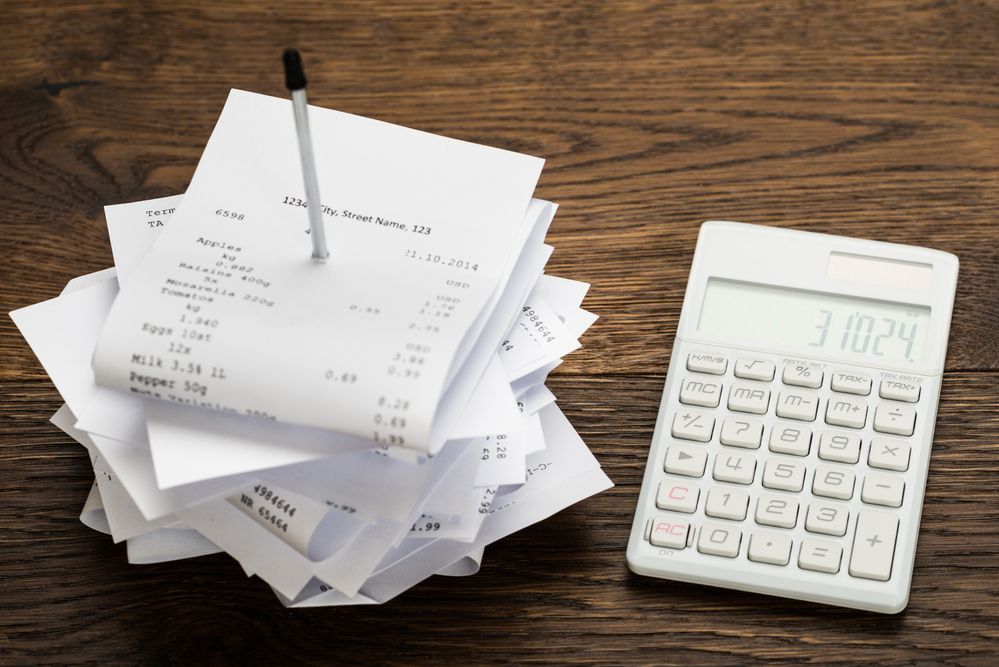What Is a Receipt?
A receipt is a written acknowledgment that something of value has been transferred from one party to another. In addition to the receipts consumers typically receive from vendors and service providers, receipts are also issued in business-to-business dealings and stock market transactions.

KEY TAKEAWAYS
- Receipts are official records representing proof of a financial transaction or purchase.
- Receipts are issued in business-to-business dealings as well as stock market transactions.
- Receipts are also necessary for tax purposes as proof of certain expenses.
- In accounting, receipts can also refer to the total cash inflows over a specific period.
- A typical receipt states the time and value of a transaction. It may also include information on the type of service or product being provided, the method of payment, and any additional taxes or fees.
For example, the holder of a futures contract is generally given a delivery instrument, which acts as a receipt in that it can be exchanged for the underlying asset when the futures contract expires.
How a Receipt Works
Receipts are used to document payments and business transactions. Companies and other entities use receipts to track their cash flows, reimburse eligible expenses, or claim certain benefits on their taxes. In some countries, businesses are required to provide a receipt for each transaction.
Each receipt should include the date of the transaction. In most cases, they have other details, such as the nature of the transaction, details of the vendor, method of payment, and any additional taxes or costs. In some cases, they may require a signature.
While receipts were once written out by hand, today, they are automatically generated at the point of sale.
Types of Receipts
In addition to showing ownership, receipts are essential for other reasons. For instance, many retailers insist a customer must show a receipt to exchange or return items. In contrast, others demand that a receipt—generally issued within a specific timeframe—be produced for product warranty purposes. Receipts are also necessary for taxes because the IRS requires documentation of certain expenses. The Internal Revenue Service (IRS) suggests that the following types of receipts, if generated, be retained by small businesses:
- Gross receipts such as cash register tapes, deposit information (cash and credit sales), receipt books, invoices, forms 1099-MISC
- Receipts from purchases and raw materials (These should show the amount paid and confirm that they were necessary business purchases; documents could include canceled checks or other documents that identify the payee, amount, and proof of payment/electronic fund transfers.)
- Cash register tape receipts
- Credit card receipts and statements
- Invoices
- Petty cash slips for small cash payments
Origin of Receipts
The practice of retaining receipts for tax purposes originates from ancient Egypt. Farmers and merchants sought ways to document transactions to avoid tax exploitation. Papyrus was used instead of paper. In more modern times, London banks used the printing presses of the industrial revolution to print receipts with their brands.

KEY TAKEAWAYS
- Thermal printing is the most commonly used form of physical receipt printing because it is low-cost and easy to use. Today, however, paper receipts are increasingly giving way to electronic receipts in the form of emails or other digital records.
IRS Requirements for Digital Receipts
Digital receipts are becoming the norm. Since 1997, the IRS has accepted scanned and digital receipts as accurate records for tax purposes. Revenue Procedure 97-22 states that digital receipts must be accurate, easily stored, preserved, retrieved, and reproduced. The business owner must be able to supply a copy to the IRS.
Digital records are not subject to wear and tear as our physical receipts, but they can be lost if a hard drive fails. It’s thus wise to store them on the cloud or somewhere they can always be accessed.
Paper receipts can be stored digitally using desktop scanners and mobile phone apps. This technology can organize, create expense reports, and integrate data with bookkeeping software.

Important
For tax audit purposes, not all documentation is valid. The IRS accepts various documentation as long as it details the amount, place, date, and type of expense.
What Are the Types of Receipts?
Examples of receipts include packing slips, cash register tape, invoices, credit card statements, petty cash slips, and invoices. Although the format for these forms may vary, they all serve the same purpose of documenting the time and value of a business transaction.
Is an Invoice the Same As a Receipt?
An invoice is a payment request, while a receipt is a document for payment that has already occurred. Businesses frequently use invoices to notify customers of the expected price after providing a service.
What Are Gross Receipts?
Gross receipts are the total cash or property a business receives without accounting for other expenses or deductions. Accountants use a company’s gross receipts as one factor to calculate the firm’s net income and profitability.
What Are Read Receipts?
In emails, read receipts determine if the recipient has opened or read a message. They are used similarly to mail delivery receipts to prove a message has been delivered.
How Long Should You Keep Receipts for Taxes?
For most expenses, you should keep receipts and other records for three years after filing taxes, as this is how long it takes for the period of limitations to run out. However, for some types of expenses—such as unreported income or bad debt deductions—the IRS advises keeping records for six or even seven years. If you do not file a return or a fraudulent one, you should keep your records indefinitely.
The Bottom Line
Receipts are one of the basic units of corporate accounting. Businesses may use receipts as proof of payment to claim deductions on their taxes, document expenditures on their income statements, and substantiate the existence of the assets on their balance sheets.





